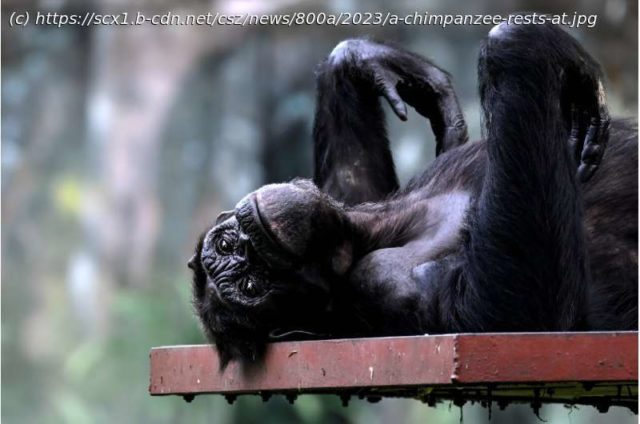Humans and some whales are the only known species in which females live long after they stop being able to reproduce.
Humans and some whales are the only known species in which females live long after they stop being able to reproduce.
A new paper in the journal Science on Thursday argues that chimpanzees should now be added to the list, and offers clues about the evolutionary imperatives behind menopause in women.
“Chimpanzees have been studied in the wild for a long time, and you might think there’s nothing left to learn about them,” senior author Kevin Langergraber of Arizona State University told AFP. “I think this research shows us that’s not true.”
The vast majority of mammal females produce offspring until the end of their lives, but humans experience a decline in reproductive hormones and the permanent cessation of ovary function around age 50.
Females of five species of toothed whale, including orcas and narwhals, similarly survive well beyond fertile age.
It isn’t obvious why natural selection would favor this trait, and only among a handful of species.
Some scientists have put forward the “grandmother hypothesis” as a possible explanation: the idea that older females enter a post-reproductive state to consume fewer resources and focus on improving their grandchildren’s odds of survival.
In the new paper, researchers examined the mortality and fertility rates of 185 female chimpanzees in the Ngogo community of wild chimpanzees in Kibale National Park, Uganda, between 1995 and 2016.






